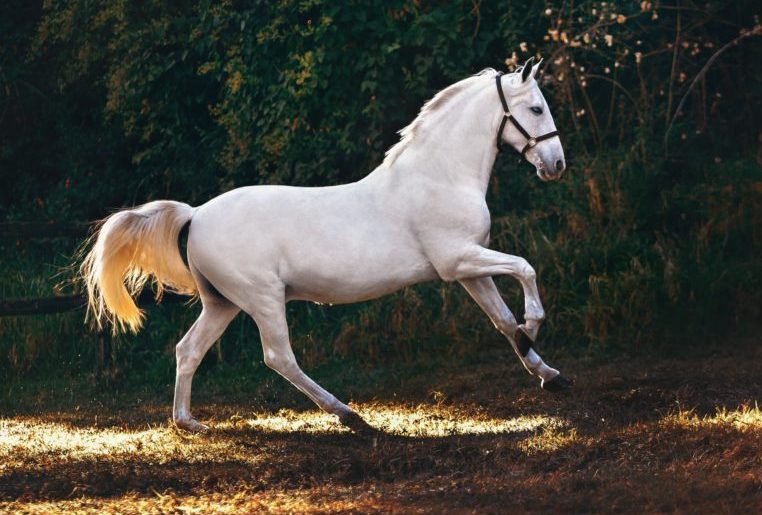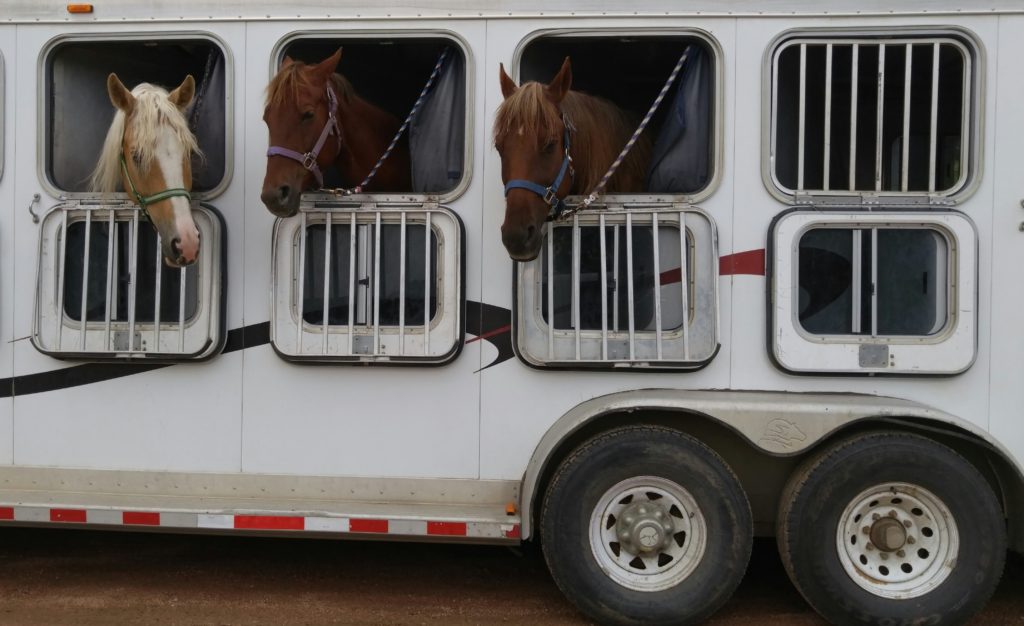Having a horse is one of the pleasures that not many people who get to enjoy. If you are lucky enough to own a horse, then you must surely know about the beauty of having a horse as a pet. The reason why not many people would want to own a horse is due to the large amount of time and effort needed to care for them as compared to other pets like dogs or cats. However, once you get in the groove, it is actually a very enjoyable experience. Just think about it, which other pets allows you to ride on them for long distances or across vast lands? Horses are, perhaps, the only pet that will have the capacity to bring you around on their back. And travelling with your horse is one of the most awe-inspiring tales that you can ever tell your friends and family.
Travelling With Horses: What You Must Know
Travelling and owning horses are not mutually exclusive events. They form part of the overall experience of having a horse, and as such it will be important that you make the experiences as enjoyable as possible. But just so you know, whether you are a seasoned competitor, or if you are an experienced horse rider, there are many things that you will need to know and prepare before you can travel with them.
Here are the top tips that you will need to know before you travel with your horse.
-
Choice of trailer
The choice of the trailer will play an important role here, since the horse will be in the trailer for long periods of time while travelling with you. One of the most critical aspect is that the trailer must be suitable for the horse’s size as well as its temperament. While the former criterion is obvious, some people might wonder why the choice of trailer does depends on the horse’s temperament.
You see, if your horse does have anxiety issues, it will be good to select a trailer that allows the horse to lower its head down as this action helps to reduce the stress levels in the horse. Also, if your horse loves to fidget around, then the choice of the flooring will be important in case it slips up. We will recommend you get a non-slip rubber flooring to help the horse to gain its footing. This way, the horse will have a lesser probability or being injured during the travelling process.
-
Practice loading and unloading of horse
 This is crucial as you will need to cater more time when it comes to loading your horse onto the trailer. Remember, if you screw this part up, it will set the tone wrong for the rest of the journey. As such, do spend time practicing on the loading, especially if your horse is pretty inexperienced or even if they are still very young.
This is crucial as you will need to cater more time when it comes to loading your horse onto the trailer. Remember, if you screw this part up, it will set the tone wrong for the rest of the journey. As such, do spend time practicing on the loading, especially if your horse is pretty inexperienced or even if they are still very young.
To help you prepare for the trip, you can opt to load and unload your horse multiple times a few weeks before you make your journey. The additional time spent to execute this process can be hugely beneficial. It will allow the horse to get accustomed to being in the trailer as well as allowing yourself to understand your horse’s nuances so that the entire process can be smooth on the actual day.
Another pro-tip is that you should remain calm at all times. You should really avoid shouting or raising your voice at the horse, which can be pretty common when the horse stops or refuse to respond to your commands and urging. The sudden elevated voices can scare your horse, which will result in them panicking which will inevitably lead to their elevated stress levels. As such, you should always remain calm. If the horse does not seem to be responding to your commands, you can then stop the session and carry it out on another day!
-
Get your papers ready
Do you homework early and get the necessary papers readied so that the journey is smooth. Some of the documents are needed to prove that the horse is indeed yours, or even to proof that the horse is healthy. Usually, the papers are needed when you travel across states. Here are the list of essential documents you will need to have.
- Certificate of Veterinary Inspection
- Coggins Test
- Power of Attorney (this is to allow the state to know who is the appointed person that can take over your responsibilities as an owner should anything untoward happen to you)
- Emergency-Responder Form
- Driver’s license
- Proof of insurance
- Registration papers for your vehicles
Of the above, perhaps the Coggins Test will appear to be foreign to many. The Coggins Test is a test to show that your horse isn’t carry infectious diseases at the time of testing.
-
Route & other essentials
To ensure that the time that your horse spends in the trailer is kept to a minimal, you should plan your route early so that you can optimize the amount of time spent. If the route is pretty long, try to include pit stops every 3 hours into the journey. This will help to reduce the stresses on your horse! Also, recall that we recommended that the trailer to be big enough so that your horse could lower its head down when it is feeling anxious? The added space will be extremely useful during long journeys as the horse can lower its head to reduce stresses!
Another thing to note about the journey is that you should try to avoid travelling when it is extremely hot as the trailer can heat up pretty fast. You should try to avoid travelling when the traffic is heavy too. We highly recommend you to travel during the night since the temperature is lower and the traffic is lighter.
Other essentials that you should bring along will be adequate hay and water so that the horse can consume them during the long journey.
Last but not least, it will be beneficial if you can map out potential vets along the route as a form of a contingency plan in case the need arises.

